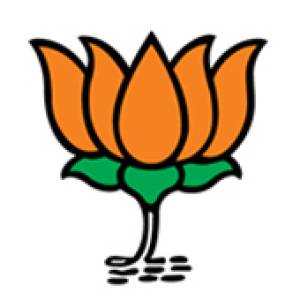Description
BJP: A Political Party in India
The Bharatiya Janata Party (BJP) is one of India's two major national political parties. Founded in 1980, it's rooted in Hindu nationalism and draws significant support from the country's Hindu majority. This description provides an overview of the party, its ideology, and its key positions. Note that this is a factual description and does not express an endorsement or criticism of the party.
Ideology and Core Principles:
- Hindu Nationalism (Hindutva): BJP's ideology is fundamentally based on Hindutva, a concept promoting Hindu culture, identity, and values as central to Indian nationhood. This often involves a focus on protecting and promoting Hindu religious and cultural practices. The interpretation and application of Hindutva are subject to ongoing debate and varying perspectives.
- Economic Liberalism: The party generally advocates for market-oriented economic policies, emphasizing privatization, deregulation, and foreign investment. However, there's also a focus on initiatives aimed at alleviating poverty and promoting economic growth for all segments of society.
- National Security: National security is a high priority, with a strong emphasis on a powerful military and assertive foreign policy. This often includes a focus on border security and counter-terrorism measures.
- Development and Infrastructure: The BJP has placed significant emphasis on infrastructure development, including roads, railways, and digital connectivity, aiming to improve the quality of life for citizens across India.
- Social Conservatism: The party generally holds socially conservative positions on certain issues, with a focus on traditional values and family structures. However, the specifics of this vary and evolve based on socio-political dynamics.
Key Policy Positions (This is not exhaustive and can change over time):
- Uniform Civil Code: The BJP advocates for a uniform civil code to replace personal laws based on religious affiliation.
- Article 370 (Repealed): The party successfully campaigned for and implemented the revocation of Article 370, which granted special autonomy to Jammu and Kashmir.
- Citizenship Amendment Act (CAA): The BJP passed the CAA, which offers a pathway to Indian citizenship for religious minorities (excluding Muslims) from neighboring countries. This has been a subject of significant controversy.
- Agricultural Reforms: The BJP has implemented significant agricultural reforms, aiming to modernize the sector and improve farmer incomes. This also sparked substantial protests and debate.
History and Electoral Performance:
The BJP has experienced significant growth since its founding, evolving from a regional party to a major national force. It has led several governments at the national and state levels, demonstrating considerable electoral success. The party's electoral performance varies across different regions and demographics.
Criticisms and Controversies:
The BJP has faced criticism on various grounds, including accusations of promoting religious polarization, undermining secularism, and marginalizing minority communities. There have also been concerns about issues related to human rights, freedom of speech, and press freedom. It's crucial to note that these are criticisms and not necessarily reflections of the party's official positions.
Disclaimer: This description provides a general overview of the Bharatiya Janata Party. For detailed and up-to-date information, refer to official party sources and reputable news outlets. This is not intended to be an exhaustive analysis or endorsement of the party.
